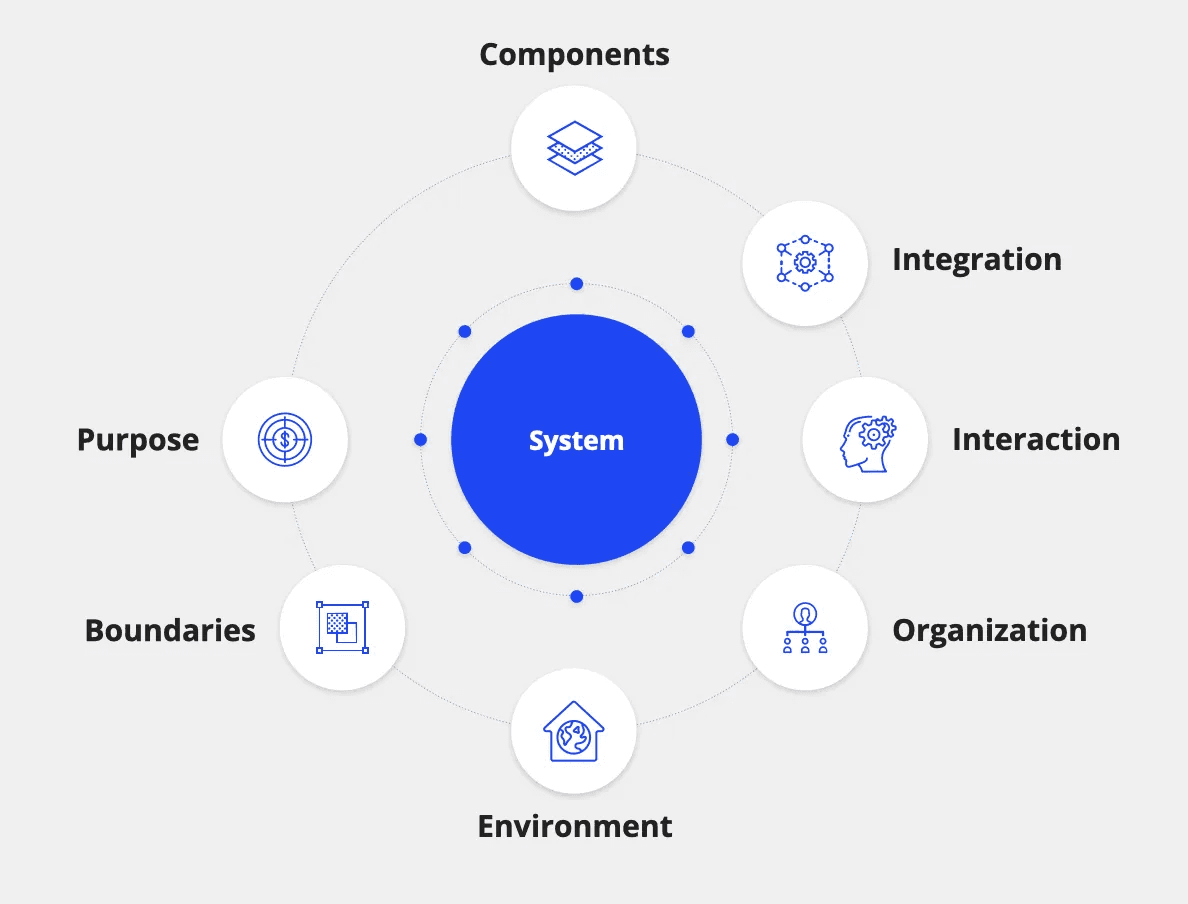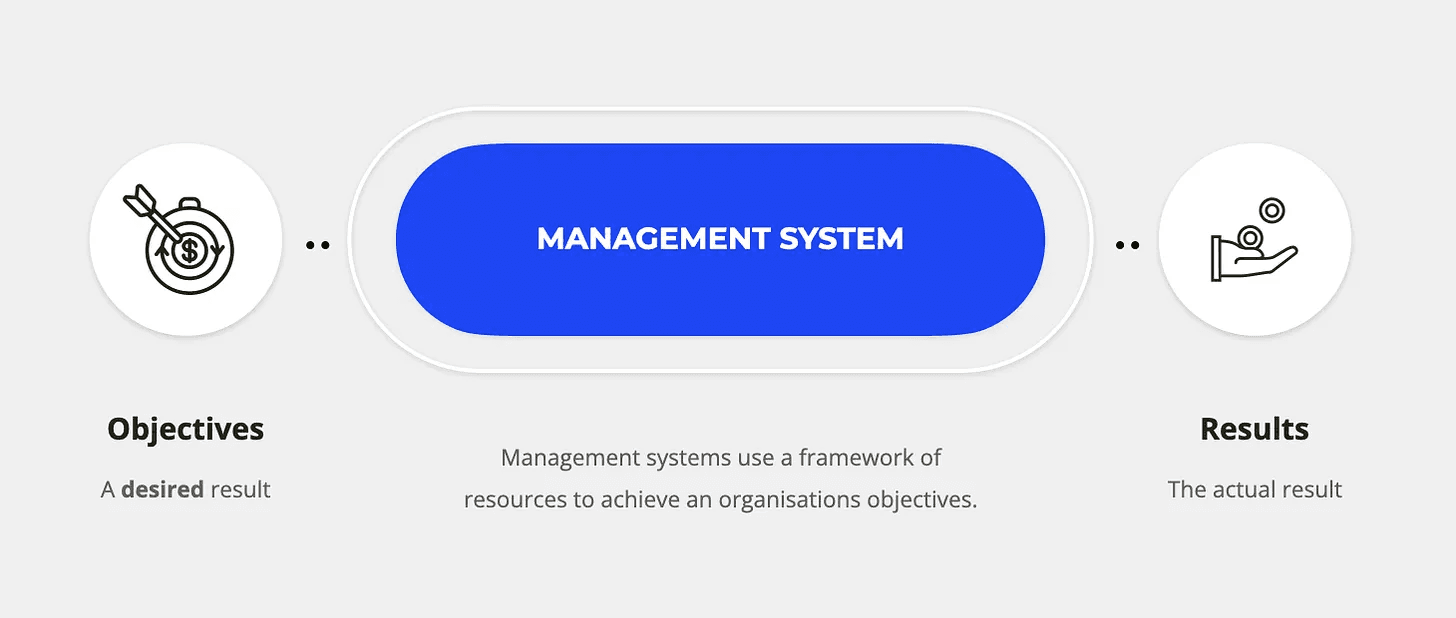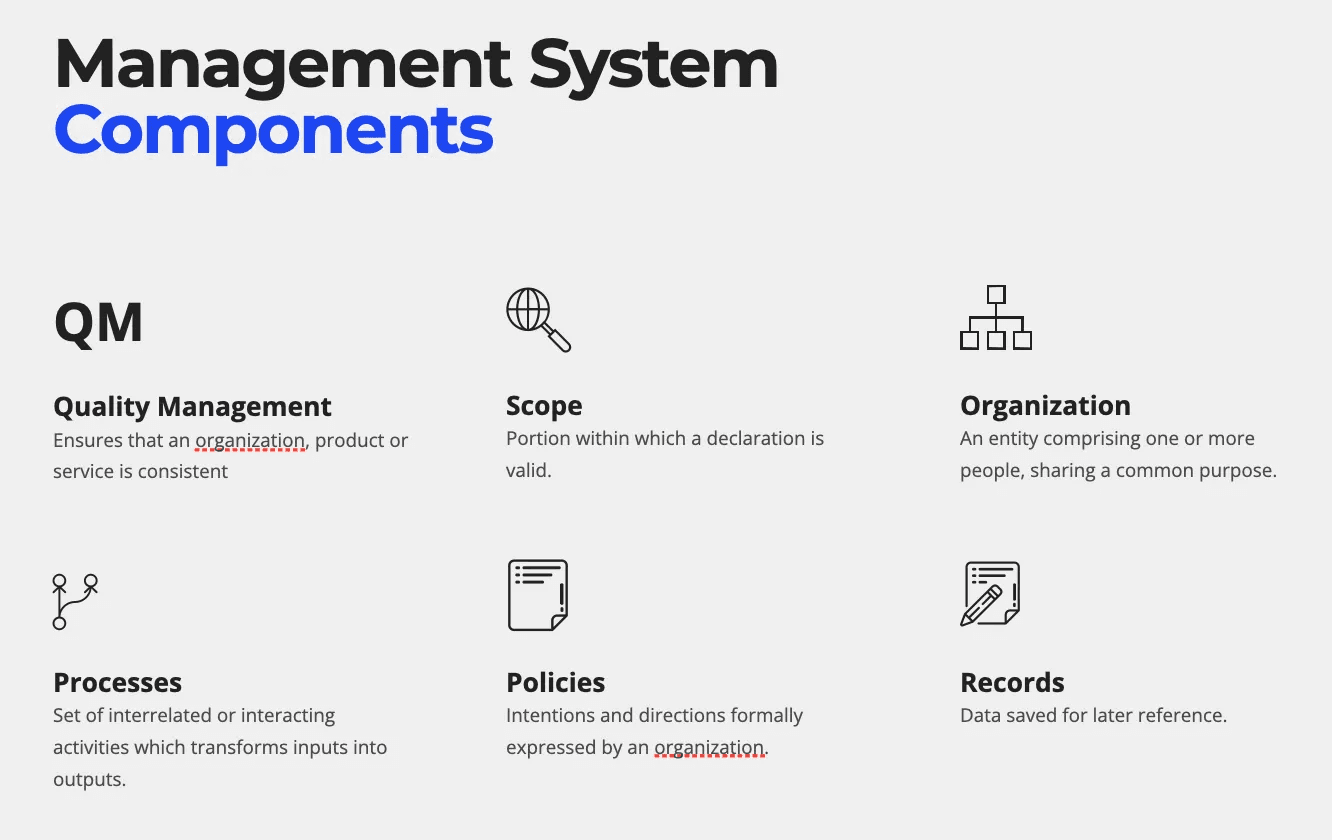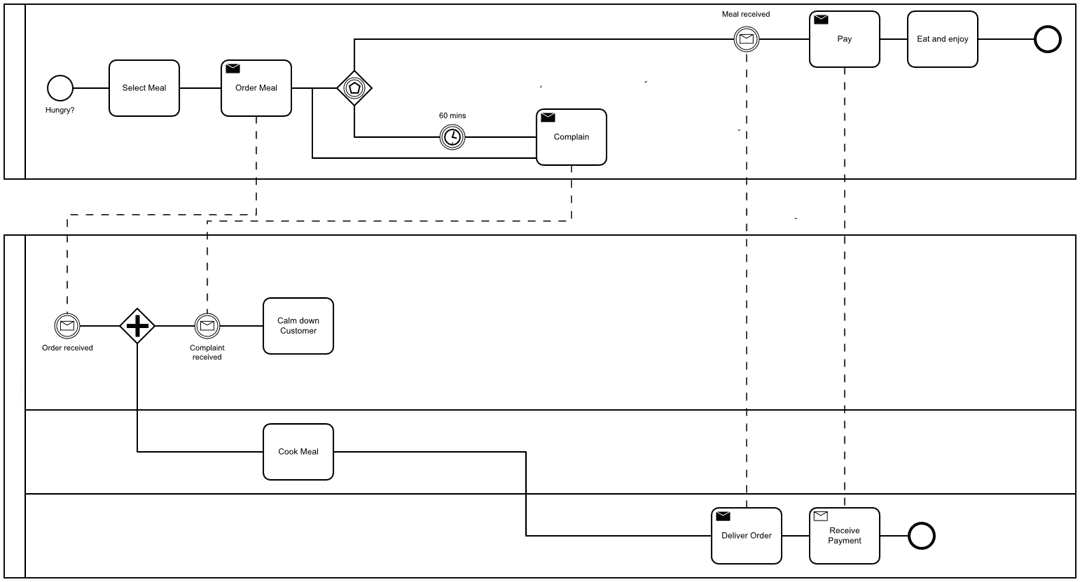Introduction
Management is a universal concept that is critical in every organization and business to ensure the smooth functioning of operations. Systems, on the other hand, provide a structured way to coordinate and control the various components of any operation. The blend of both concepts creates an effective management system, which plays an integral role in improving efficiency and productivity in organizations.
In this article we will learn how management systems can help organisations reliably achieve their objectives. But if you prefer video content over text, you might wan to have a look at the following lecture taken form one of my courses.
What is Management?
According to the International Organization for Standardisation (ISO management is defined as:
“Management activities include the act, manner, or practice of organizing, handling, directing, supervising, and controlling resources.”
Thus, management involves the coordination of human, material, and financial resources toward achieving the strategic objectives of an organization.
What is a System?
A system is a group of interacting, interrelated, or interdependent elements that form a complex whole. This definition is applicable across numerous fields, from biology and physics to computer science and social sciences.
For instance, in biology, an ecosystem can be viewed as a system where various organisms (plants, animals, bacteria, etc.) interact with each other and with the non-living components (like air, water, and soil) to form a complex, interconnected whole.
In computer science, a system could refer to a computer's operating system, where various software and hardware components work together to execute tasks.
Thus, regardless of the context, a system represents an organized, interconnected arrangement of components, each contributing towards the functioning of the whole in a coordinated manner. It is through this interaction that the system achieves properties and behaviors that are more than just the sum of the individual components.

What is a Management System?
When we combine the principles of both management and systems, we arrive at the concept of a management system.
The International Organization for Standardization (ISO) defines a management system as:
“A management system uses a framework of resources to achieve an organisations objectives.”
These objectives typically relate to a variety of aspects including quality, environmental performance, occupational health and safety, information security, and financial and operational performance.

Components of Management Systems
Management systems consist of multiple components, each with a unique role in facilitating the effective functioning of the system.

QM Principles: PDCA Approach
A key pillar of any management system is the Quality Management (QM) principles, with the Plan-Do-Check-Act (PDCA) approach being a central element. This principle provides an iterative methodology for implementing and managing change while maintaining high-quality standards.
Scope
The scope of a management system defines its jurisdiction and purview. It is essentially the boundary within which the system operates, outlining what aspects it will cover and which ones it will not.
Organizational Structure
The hierarchy and reporting lines of an organization form a crucial part of a management system. They provide a roadmap of responsibility and authority, thereby facilitating effective delegation and communication.
Processes
Processes are the lifeblood of a management system. They consist of a sequence of activities that transform inputs into outputs. These processes must be well-defined and managed to ensure the system achieves the intended results.
Documented Information
Policies, procedures, records, and other forms of documented information are integral components of a management system. They serve as a reference point, providing guidance and evidence of conformance to the system's requirements.
Examples of Management System Standards
Several internationally recognized standards provide guidelines and benchmarks for the establishment of effective management systems. Here are a few examples:
ISO 9001: Quality Management Systems: This standard provides a framework for organizations to ensure they meet customer and regulatory requirements related to a product or service.
ISO 14001: Environmental Management Systems: ISO 14001 helps organizations to manage and mitigate their environmental impacts, promoting a strategic approach to environmental policy, plans, and actions.
ISO 27001: Information Security Management Systems: ISO 27001 provides requirements for an information security management system to manage and reduce risks to information security. Learn more
ISO 20000: Service Management System: This is a standard for IT Service Management (ITSM), which was developed to mirror the best practices described within the IT Infrastructure Library (ITIL®) framework. It sets out criteria for the implementation of a systematic approach in the management of IT services, aiming to ensure that they meet business and customer requirements.
ISO 45001: Occupational Health and Safety Management Systems: This standard provides guidance for organizations to improve their employee safety, reduce workplace risks and create better, safer working conditions.
These management systems, when properly implemented, offer a robust and systematic approach to manage critical aspects of business operations, facilitating continuous improvement and sustainable success.
In conclusion, a management system is a powerful tool for any organization seeking to optimize its operations, improve efficiency, and consistently meet its objectives. A well-defined and effectively implemented management system is a valuable investment that yields significant returns in the form of improved performance, enhanced customer satisfaction, and increased competitiveness.



